July 2023 Newsletter
Welcome to the July 2023 issue of the Global Washington newsletter.
IN THIS ISSUE
- Letter from our Executive Director
- Issue Brief: From Survival to Self-Reliance – GlobalWA Members Untangle the Complexities of the Refugee Crisis
- Organization Profile: Organization Profile: Better Than a Movie: Operation Snow Leopard (Afghanistan)
- Goalmaker: Elfatih Abdelnabi, Immigration Program Manager, International Rescue Committee
- July Links
- Welcome New Members
- GlobalWA Member Events
- Career Center
- GlobalWA Events
Letter from our Executive Director
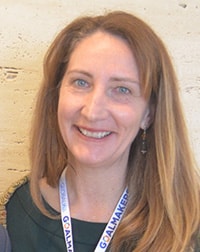
Over the past two years, there has been a dramatic increase in the number of people forcibly displaced around the world. 19 million people left their homes in 2022 due to conflict, violence, climate change, and other factors making their living situation unbearable. This brought the total number of refugees and displaced people to 108.4 million – a staggering number of people – and solutions for support and resettlement are becoming increasingly challenging.
However, I am hopeful that refugees are finding safe places and services due in part to Global Washington members. This includes emergency responses in places such as Ukraine and long-standing crises in regions such as Yemen and Myanmar, and ongoing programs for settlement and self-reliance. The expertise and resources that our GlobalWA members are bringing to bear is admirable and is certainly making a difference. Read more about these efforts below.
Several of the programs described below are done in partnership with one or more GlobalWA members. Collaboration and building trusting relationships are what GlobalWA is all about. Our network is growing stronger each year as we respond to member needs, make valued connections, and promote innovative approaches to global development. We are extremely excited about our new strategic plan and centering the principles of co-creation throughout our work. We will have new member offerings and new member rates as of August 1st, 2023 to better reflect the growth and quality we aim to provide. You can read more about our new member benefits here. If your organization is interested in becoming a new GlobalWA member, please contact us at info@globalwa.org.

Kristen Dailey
Executive Director
Issue Brief
From Survival to Self-Reliance – GlobalWA Members Untangle the Complexities of the Refugee Crisis
By Aneesh Chatterjee
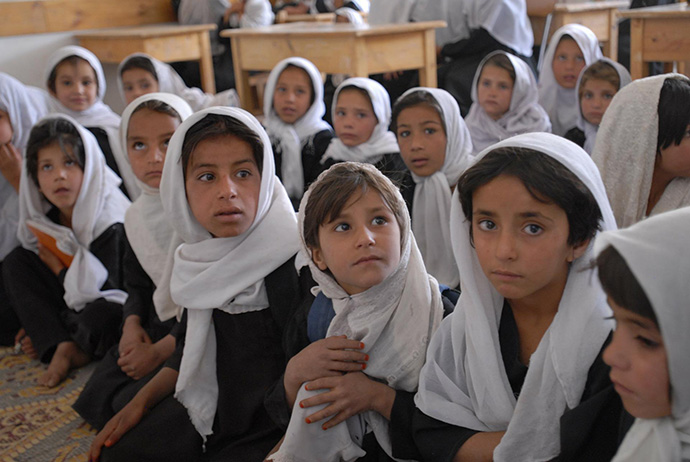
Afghan children. Photo: Pixabay
Reducing inequalities for all, the central pillar of Sustainable Development Goal 10, is a sentiment exemplified in no small part by efforts to address the rampant and growing refugee crisis. The lack of access to resources, whether they be vital for survival or instrumental in economic success, is a persistent issue present in refugee communities the world over. The number of people displaced around the world due to war, human rights abuses, and persecution reached up to 108.4 million as of 2022, according to the UNHCR’s Global Trends Report. Increasingly strict refugee admission laws have exacerbated the disaster, highlighting a stark pushback against the acceptance of displaced persons.
From emergency relief to education, training and resettlement, GlobalWA members engage with the refugee crisis through unique and impactful interventions, shrinking the gap between these communities and the resources they need.
Building stability: Vital provisions for displaced communities
Displaced populations are at risk of malnutrition, violence, disease, and starvation. To address the lack of crucial survival needs, GlobalWA members have worked to provide effective, essential resources for refugees across the world.
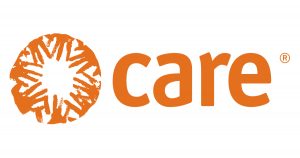
For CARE, providing access to nutrition, sanitation, and healthcare is paramount when addressing the refugee crisis. With programs across the world focusing on multiple populations of displaced persons, CARE conducts exemplary work in providing vital resources.
In the Democratic Republic of Congo (DRC), CARE has provided food rations, sanitation resources for women and disease and gender-based violence prevention training for local refugee communities. In Bangladesh, CARE has helped bolster the community’s healthcare resilience by building an isolation center during the COVID-19 pandemic, capable of housing up to 40 people and created for the Rohingya refugee population. Solar-powered, equipped with medicine and oxygen support, and staffed by doctors, the facility has been instrumental in servicing the local refugee community during the pandemic.
In Venezuela, CARE has taken vital steps to address the rampant displacement of nearly 3 million people due to rising hunger, political violence, crime rates, and inflation. With host nations like Ecuador requiring refugees to have Venezuelan passports to enter, and victims housed in Columbia facing xenophobic violence from locals, refugee populations are at risk of human trafficking, violence, and malnutrition. In 2018, CARE provided cash vouchers, SIM cards and public transportation tickets to displaced communities across Columbia, Ecuador, and Venezuela, connecting them with tangible, practical resources to provide relief from hunger, isolation, and a lack of communication. Refugees in Peru were also connected with shelters and health clinics, while those in Columbia were granted access to legal counsel and other necessary information resources. CARE has taken similar approaches in assisting refugees from Syria, providing food kits, winter survival equipment and access to reproductive health support for women for up to 4.5 million displaced persons in Syria. Beyond provisions, CARE has also helped refugee communities build resilience with agricultural production support, paid work, microfinancing, and access to clean water.

Other GlobalWA members are working to address lack of access to a myriad of specific resources. Adequate water access is a priority for Oxfam America, exemplified by their work in Ethiopia. To supply clean water to refugee camps, Oxfam’s implementation of a 100-kilometer-long pipe network, drawing water from Baro River, treats and directs nearly 1500 cubic meters of water a day. Americares has focused on increasing access to medicine and healthcare for Ukrainian refugees, partnering with 77 local institutions and providing up to $84 million in grants to facilitate medical aid shipments.

Beyond preserving health and ensuring survival, other members focus on building structural resilience in refugee communities, teaching self-sufficiency, and ensuring sustainable economic engagement.
Investing in self-reliance: Training and literacy
Certain GlobalWA members focus on providing refugee populations with the skills, resource access and financial acumen required for self-reliance and long-term stability. To that end, organizations have prioritized financial training and employment as key areas of focus in addressing the refugee crisis.

The Refugee Women’s Alliance (ReWA) highlighted the work of Starbucks in joining the pledge to hire and train 250,000 refugees in Europe, in the wake of displacement caused by the invasion of Ukraine. Announced at the 2023 Tent European Business Summit on World Refugee Day, June 20th, Starbucks is joining Amazon, Accenture, Adidas, Indeed, Randstad, ManpowerGroup, and others in providing real employment to Ukrainian refugees –numbering at nearly 6 million people displaced across Europe.
Starbucks alone has pledged to provide skills training to 86,000 refugees and direct employment to over 13,000. Through their Refugee Employment Program, Starbucks has committed to training Ukrainian refugees in specific retail industry skills, including interview proficiency and customer service. Starbucks’ history with refugee assistance spans back to 2017 at the inception of the Refugee Employment Program, founded on the goal of hiring 10,000 refugees by 2022.
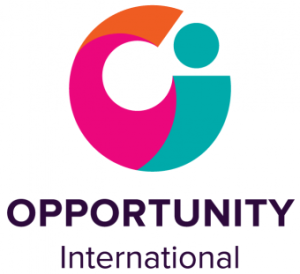
Providing financial assistance to displaced communities has been a cornerstone of development toward the reduction of inequalities for refugees, enabling a tangible distribution of access to the economy, to training resources, and investment opportunities. To that end, the Refugees, Innovations, Self-Reliance and Empowerment (RISE) initiative is a 2019 project by Opportunity International to provide financial literacy to refugees, engage them with the local economy and build long-term resilience and self-reliance for communities in Uganda. Host to over 1.5 million refugees from multiple neighboring states, with a majority coming from South Sudan and the Democratic Republic of the Congo, the government of Uganda has developed response frameworks to allow equal access to sanitation, education and healthcare for refugees. Utilizing cooperation from local institutions, the RISE project partnered with Opportunity Bank Uganda and FINCA to deliver extensive financial literacy services.
Within a year of the program’s implementation, Opportunity International had trained 950 refugees in financial literacy, with 90% of them actively saving their earnings. 200 refugees also reported to be writing financial diaries, which Opportunity International reports has helped motivate participants to earn and save, develop mindsets built for sustainable finance and self-regulation, and worked as a vital window into the personal experiences of refugees during the COVID-19 pandemic.
In June, 2023, Opportunity International entered into a two-year partnership with Rural Inclusion (RI) to use RI’s proprietary Ostrii platform to deliver financial literacy training for populations targeted by RISE (in a new phase of the project dubbed Refugees, Innovations, Self-Reliance and Empowerment—Transition, or RISE-T).
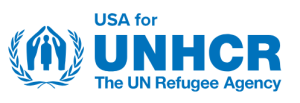
Other GlobalWA members have built additional sector-specific services and resources that address key necessities for refugee communities beyond survival. The Kiva World Refugee Fund, co-founded by USA for UNCHR, finances small businesses operated by refugees – a critical step toward financial freedom, growing beyond simply meeting the basics for survival. Launched in 2017, the Fund provides refugees with credit, financial counsel and zero-interest loans, enabling them to climb out of crisis and participate in the economy. The Global Mentorship Initiative aims to connect refugee candidates with professional networks, train them in digital skills, build resumes and teach other transferrable workplace skills to ensure career success for candidates.
Beyond financial and educational support, the full scope of refugee assistance can be seen in organizations built specifically to address the increasingly complex crisis of displacement.
Broad-spectrum: Dedicated institutions for refugees
Alongside NGOs with multi-sector focuses and specialized branches for refugee support, certain GlobalWA members are built on the foundation of helping refugees across the world restabilize and thrive. With efficacious branches in multiple areas of development, these organizations deliver rounded and comprehensive programs.
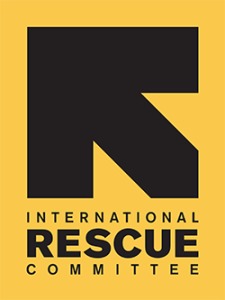
The International Rescue Committee (IRC), created to help people recover from disasters and displacement, provides programs across multiple sectors of focus, having reached over 32.9 million people worldwide. Providing structural resilience, the IRC inculcates safety training in schools and workplaces, ensuring women and children are protected from violence and abuse, and promoting healthy practices for safety and awareness around communities recovering from disasters. The IRC’s comprehensive healthcare goals focus on empowering locals in treating and preventing pneumonia, malaria, malnutrition-related fatalities, and other conditions targeting children. Advocacy services connect people with health insurance, provide access to the proper doctors and necessary facilities, and teach self-care in the long term for lifelong conditions. In the education sector, the IRC works with teachers and parents to ensure a nurturing and supportive learning environment, at school and at home. The provision of reliable and high-quality instructional material and other school facilities accompany their focus on building an enriching educational space for refugees.
In addition to these focuses, the IRC also provides financial assistance and extensive advocacy and empowerment services to ensure that refugees are not denied resources, connections, and opportunities.
USA for UNHCR is another organization built to reincorporate displaced persons into society, with a similar multi-sector approach. Their emergency relief efforts, cash provisions alongside other financial assistance, and education programs are accompanied by their focus on innovative, adaptable technologies. The remote Azraq refugee camp in Jordan was the first to run on solar power in 2017, allowing for nighttime operations, food refrigeration, and prolonged light availability, bringing predicted energy savings at $1.5 million per year – one example of USA for UNHCR’s successful impact in crises using versatile innovation. In the education sector, the organization had helped up to 250,000 refugee children successfully enroll in school by 2018, and had helped 4000 refugees win the Albert Einstein German Academic Refugee Initiative scholarship, opening up opportunities to study at universities across the world.
In addition to developmental programs, USA for UNHCR also helps refugees resettle in the United States. A mentorship program called Hello Neighbor matches newly-settled refugees with locals, providing guidance and cultural acceptance for newcomers. Kids in Need of Defense (KIND) provides free legal counsel for child refugees who arrive unaccompanied, and the Refugee Congress is a delegation with representatives from all 50 states who advocate for refugees in a joint venture.
From preventing starvation at a grassroots level to reshaping mindsets and institutions, NGOs have worked to reduce inequalities for refugees at every level of engagement, across multiple sectors. A collaborative approach that utilizes the specialized focuses of these organizations, alongside the joint expertise of comprehensive refugee-dedicated NGOs, presents as the most reliable path to development in the refugee crisis.
In addition to the above organizations, the following GlobalWA members are working to help refugees, immigrants, and internally displaced persons through their programs in communities where they work.
CARE is dedicated to supporting refugees and people displaced by war, disaster and drought around the world. For those fleeing crises, CARE is there to provide urgently needed support. In places like Ukraine and Syria and across the borders where so many have fled, CARE distributes relief supplies such as food baskets, water, tents, hygiene and baby kits, dignity kits for the elderly, and kitchen sets. During harsh winters, we support families with mattresses, blankets, floor coverings, and children’s clothing. CARE’s and our partners also work with health clinics, and we place a special focus on the needs of women and girls, ensuring access to maternal and reproductive health care.
During protracted conflicts like the one in Syria, there is also an urgent need to rebuild livelihoods and encourage social cohesion and resilience to help people cope with a long-term crisis. Together with partners, CARE has developed programs that contribute to strengthening the resilience of communities affected by the crisis. This includes providing families with early recovery and livelihoods support, such as agricultural production, cash for work, women’s economic empowerment, microfinance, and psychosocial support programming.
ChildFund International promotes children’s development at each stage of life to ensure infants and young children are healthy and secure, children are educated and confident and youth are skilled and involved in their communities. ChildFund reaches over 10.5 million people across 24 countries – including the United States – through work with local partner organizations, governments, corporations and individuals. We work to strengthen child protection-focused institutions and policies by combining our programs with efforts to influence local and national leaders to prioritize the protection and well-being of children and youth. Approximately 200,000 Americans support ChildFund’s work through sponsoring individual children and investing in our programs.
Concern Worldwide is an international humanitarian organization dedicated to ending extreme poverty, whatever it takes. Concern believes that no human potential should go unfulfilled due to poverty, disaster, or crisis. Since 1968, Concern has saved countless lives – reaching 36.9 million people in 2020 alone – while working alongside communities to develop programs to help break the cycle of poverty, for good.
Covenant House International builds a bridge to hope for young people facing homelessness and survivors of trafficking through unconditional love, absolute respect, and relentless support. Its doors are open 24/7 in 31 cities across six countries: Guatemala, Honduras, Mexico, Nicaragua, Canada and the U.S. Its holistic programs empower young people to rise and overcome adversity, today and in the future.
Every college student, refugee, and early career candidates deserves a champion. One person to guide them as they navigate the transition to their first career. Through a structured, online, one-to-one mentorship with a business professional, we are connecting mentees to employment, transforming communities, and building a brighter tomorrow.
Academics, defenders, immigrants and innocent persons can be unjustly detained or disappeared. GRA takes their cases to the United Nations or the Inter-American Commission of Human Rights.
Defending indigenous lands, the environment or immigrant rights could trigger retaliation. GRA represents defenders before the Inter-American Commission of Human Rights and the United Nations.
For years we documented human rights violations at the NWDC and reported direct voices from detention to the United Nations and the Inter-American Commission. We work to end immigration detention and partner with La Resistencia.
International Rescue Committee
The International Rescue Committee (IRC) helps people in 40+ countries whose lives and livelihoods are shattered by conflict and disaster to survive, recover, and gain control of their future. Since 1976, the IRC in Seattle has helped thousands of refugees, immigrants, and survivors of human trafficking to rebuild their lives in Washington State.
JHR has been active since August 2021, providing relief, rescue, and resettlement to vulnerable Afghans facing inhumane living conditions and threats under the Taliban.
Mercy Corps is a leading global organization powered by the belief that a better world is possible. In disaster, in hardship, in more than 40 countries around the world, Mercy Corps partners to put bold solutions into action—helping people triumph over adversity and build stronger communities from within. Now, and for the future.
Operation Snow Leopard has established an optimized network of Strategic Partners to support Proven Enablers to bring home from Afghanistan every US Citizen and Legal Permanent Resident (LPR), the immediate and extended family members of US citizen and LPRs, and our Afghan allies and partners who served the United States Armed Services faithfully as Afghan special operations, interpreters, security specialists, and intelligence analysts. The situation in Afghanistan is dire and their lives are in our hands, thus we will honor the promise our nation made to protect them.
In June 2019, Opportunity International launched a pilot project in Uganda to help integrate and financially include refugee and host communities, promote self-reliance among refugees, and stimulate local economic activity in refugee settlements and surrounding communities.
The program began with extensive listening in the Nakivale Settlement. Researchers asked questions about refugees’ financial needs and behaviors, then used this information to develop tools and training designed specifically for these communities. By May 2020, 950 refugees had received financial literacy training and 90% reported that they were actively saving their earnings.
Building on that initial success, we continued to listen to the specific needs of this vulnerable population. With a primary focus on financial inclusion and access, we expanded to services to the Rwamwanja Refugee Settlement – as well as urban refugees populations in Kampala and Mbarra.
Overall, this initiative has created 1,194 jobs and improved 1,560 jobs for refugee youth. We established a branch of Opportunity Bank Uganda Ltd. in Nakivale, and it was officially opened by HRH The Princess Royal, Princess Anne, in October 2022. In April 2023, we began a two-year pilot in partnership with FINCA International to help strengthen the capacity of Early Childhood Development centers in refugee settlements.
OutRight Action International is the leading US-based non-profit fighting for human rights for LGBTIQ people globally, especially in places where they face extreme violence, discrimination, and persecution. OutRight monitors and documents human rights violations, supports grassroots activists on the frontlines, and holds governments accountable at the United Nations and beyond.
Spreeha strives to break the cycle of poverty for underprivileged people by providing healthcare, education, and skills training. Spreeha envisions life without poverty where underprivileged people are empowered to improve their quality of life.
At every level of response to the crises that force people to leave their homes and seek refuge – from authorities setting border policies, to humanitarian groups working to respond, to media that is covering the issues – the ways that women are affected and migrate are overlooked. Issues of sexual violence, trafficking, reproductive health needs, and others remain unaddressed, increasing situations of vulnerability and rights violations. As long as efforts to protect the rights of refugee and migrant women lack this crucial gender perspective, responses will leave out the needs of half the population.
Women’s Link Worldwide works on trafficking, reproductive rights, and refugee and migrant women’s rights in East Africa, Europe, and Latin America. With our partners we identify rights violations and use legal strategies and advocacy to confront the lack of respect for the rights of migrant women. While we litigate single lawsuits, we structure them in a way that seeks changes in the larger systems that protect the rights of hundreds and thousands of other migrant women and girls. For example, our case before the European Court of Human Rights resulted in the end of policies that separated migrant women and their children by the Spanish government. Our client was separated from her son when she was en route to Europe from Africa. Despite having completed all procedures, child protective services did not take any action to reunite her with her son.
Our fight to protect and expand the rights of women, girls, and gender diverse people is a challenging venture, and is a critical contribution in contexts of mass forced migration.
The World Affairs Council advances global understanding and engagement throughout the Puget Sound region.
World Concern provides humanitarian assistance to refugees and internally displaced persons to address their immediate needs, promote self-reliance, and support their journey toward finding durable solutions. Leveraging an inclusive approach that emphasizes resilience, World Concern provides aid to help mitigate the adverse effects of prolonged displacement, such as aid dependency and negative coping strategies.
World Concern, for example, has supported the refugees in Cox Bazaar in Bangladesh with protection systems that prioritize the most vulnerable people among the affected populations in identifying and mitigating risks and strengthening resilience.
World Concern has supported the Rohingya refugees with appropriate materials for making decent shelters and provided them with hygiene materials and cooking fuel to enhance their living conditions. World Concern has also partnered with others to ensure the refugees receive medical care and meet their food and nutritional needs. Among the youth, World Concern supports their mental health and acquisition of vocational skills.
Women are equipped to start income-generating activities while families are trained to reduce gender-based violence and women and child exploitation and abuse. Though the Rohingya crisis is becoming one of the major neglected humanitarian crises, World Concern continues to support the refugees and host communities by offering protection, education, WASH, and livelihood interventions.
The World Justice Project is an independent, multidisciplinary organization working to advance the rule of law around the world. Effective rule of law reduces corruption, combats poverty and disease, and protects people from injustices large and small. The World Justice Project conducts survey research and engagement activities in 125 countries and maintains a global network of strategic partners.
World Vision is a Christian humanitarian organization dedicated to working with children, families, and their communities worldwide to reach their full potential by tackling the root causes of poverty and injustice.
Organization Profile
Organization Profile: Better Than a Movie: Operation Snow Leopard (Afghanistan)
By Tyler LePard
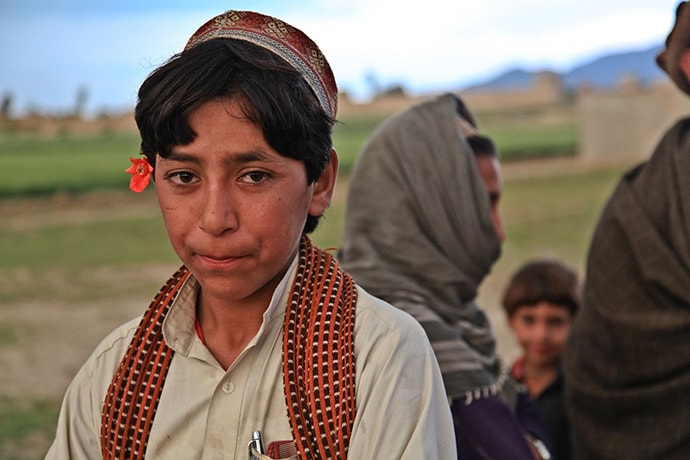
Afghan boy and family. Photo: ArmyAmber/Pixabay
Imagine that your country is in turmoil and you may need to flee your home. You’ll have to leave parts of your family, your livelihood, your community, and your belongings. Where can you go? When is the right time to leave? How will you get there? Maybe the fighting isn’t too close yet, maybe your city won’t fall. And then maybe it’s too late to get to safety. Or maybe your partner or child is too sick. Who can help? For many people around the world, this is a very real scene from their lives.
In the months leading up to August of 2021, it became clear that Afghanistan’s capital city of Kabul was going to fall to the dangerous regime of the Taliban. Many of the veterans associated with the nonprofit group Veterans in Media & Entertainment began to come together to figure out how to evacuate and relocate at-risk Afghans–women leaders, human rights defenders, journalists, interpreters, athletes, musicians, filmmakers, activists, and other vulnerable minorities as the country fell apart.
Veterans form Operation Snow Leopard
This multigenerational group that includes veterans from the Vietnam War to the Iraq and Afghanistan Wars formed Operation Snow Leopard (OSL) with a mission to facilitate the safe evacuation and resettlement of 2,500 high-risk Afghans, primarily women and children on their manifest. It started with veterans who work in Hollywood as writers, directors, actors, producers, editors, accountants, cybersecurity techs, and logistics experts. A few of the people involved are social impact producer Bonnie Abaunza (Blood Diamond, Hotel Rwanda), writer/director Rebecca Murga (Apple TV’s Swagger), actor Caitlin Basset (NBC’s Quantum Leap), led by writer/producer Karen Kraft.
Bob Ness, a life-long humanitarian and OSL senior advisor, brought OSL several key supporters such as Phil Kaplan Fund, the Jackson Foundation, and the Peg and Rick Young Foundation. Bob also introduced the team to Global Washington.
The all-volunteer group has grown to include nurses, pilots, database builders, grad students, and other civilians. There are now nearly 100 volunteers who are part of OSL. They are a team of Christians, Jews, and Muslims from 10 countries who share a vision of solidarity and friendship across all religions and countries around the world.
“On September 1, 2021, over 20 million Afghan women and girls were effectively rendered voiceless under the new regime. We were driven to action by our commitment to keep the promise our nation made, so we will be their voice. This may seem like someone else’s problem, but it’s not, this belongs to all of us because this is a tragic human rights issue, with severe security and economic impacts.” – Karen Kraft, Operation Snow Leopard volunteer, documentary producer and former U.S. Army Officer.
Making progress over the past two years
Initially the main barrier was the mass chaos in Afghanistan and lack of guidance from the governments. No one had a plan. Many people and organizations wanted to help. OSL started calling people they knew at different agencies and embassies for guidance, finding people with relevant skillsets like former diplomats, building relationships, and learning the language of diplomacy and refugee resettlement so that they could figure out how to move Afghans to a safer place.
“When OSL sought to move Afghan Parliamentarians and senators, their Senior Advisor and former US Congressman Dr. Brian Baird of Washington stepped in and connected us to human rights champions like the incredible Juan de Dios Cincunegui, the Deputy Director of the School of Government at Universidad Austral in Argentina. De Dios connected us to the International Parliamentary Union to find support and grew our global circle” explained Kraft. “Meanwhile, OSL’s legal advisors, Christopher Dempsey, a veteran who served in Afghanistan and later as an attorney for President Obama’s Department of Justice, advocates with high-level DHS officials.
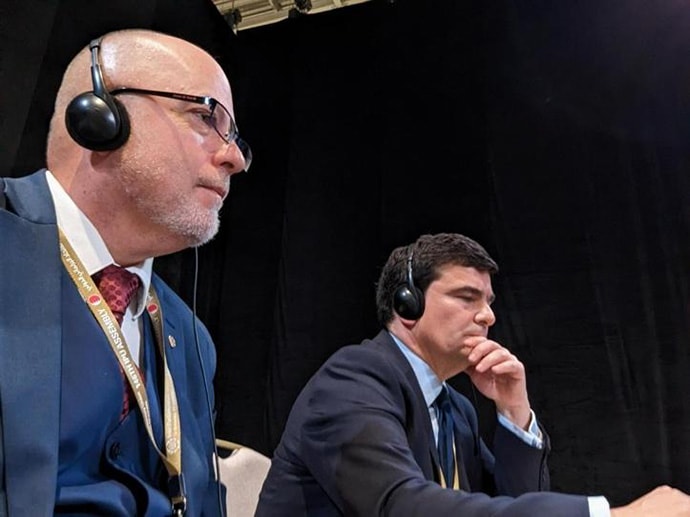
Jason Hatch (left), OSL volunteer, and Juan de Dios Cincunegui of Argentina at the 146th International Parliamentary Assembly in Bahrain.
OSL also works with many other nonprofit and faith groups as they have built an underground railroad helping legally move people out of Afghanistan to safety. Retired US Army officer and former diplomat, Jason Hatch, runs their Afghan Digest, a free online publication providing open-source daily analysis with the input from dozens of Afghans.
As OSL secured international connections, countries like Canada and Argentina stepped up to help, and more people joined the effort, they made progress in evacuating and relocating Afghans. OSL made a commitment for a 2-year mission, thinking that’s all it would take. But, of course, Afghanistan wasn’t the only world crisis. In February of 2022, Russia invaded Ukraine, which moved the whole Afghan issue to the backburner. Without the constant attention, it got harder to put pressure on government officials who were now pulled in new directions. OSL had to learn to continually adapt to world stage changes and also to learn how to fit into existing programs with the United Nations High Commissioner for Refugees (UNHCR). Now, OSL has dropped the 2-year time timeframe.
OSL has achieved a lot in two years: they have evacuated and relocated more than 1,800 at-risk Afghans to date. They aim to evacuate at least 300 more families by early 2024.
Dost’s story
Dost Safi works as the Director of Security and Logistics for Operation Snow Leopard and has recently become an American citizen. He served as a U.S. Special Forces interpreter in Afghanistan for nearly a decade. He now leads a team of nearly 40 Afghan women and men in OSL helping to evacuate and resettle doctors, judges, athletes, and professors, as well as artists, musicians, and even a prominent actress. “I suffer for my people. I know the pain, stress, and anxiety of losing your home. I don’t want others to feel the same. The more you help others, the more inner peace you find, and the more you honor God,” said Dost.
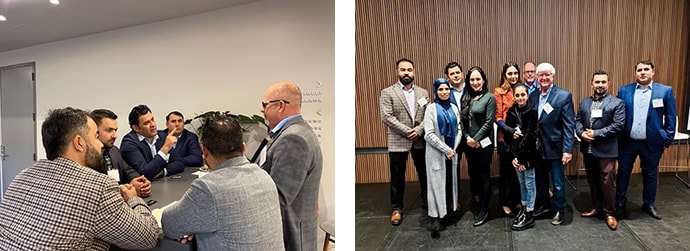
Dost Safi leading a breakout session of Afghans sharing ideas on how to continue the evacuation of their families and friends in dire straits. Global Washington Goalmakers Conference, 2022.
Dost attended the 2022 Global Washington summit with four of his Afghan colleagues. “I was amazed by the diverse group of Americans and nonprofits all just wanting to help others. It’s humbling and encouraging to witness this goodness. I don’t know if the people of Washington understand how special it is to see this kind of gathering,” Dost shared.
Sam’s story
“After the Taliban’s takeover, I lost my home and hopes within a few weeks, even being alive seemed like a weak possibility. By evacuating me and my family to safety, OSL gave me the hope to build a home in America and the chance to live in safety,” said Sam, a young woman and recent Afghan college graduate.
“I now work as an Admin Assistant at the Mayo Clinic. I am a board member of a local legal nonprofit while serving as a human rights commissioner in the county where I live. I have been through a lot, but now I am safe and it is a reminder to make the world at least a penny better, and ensure no one will ever experience what I have overcome.”
Sam continued, “Thanks to OSL, and people involved in our evacuation, now, I am alive, hopeful about the future, and have somewhere to call home.”
Sayed’s story
“We are very blessed to be helped by OSL getting my family safely to the USA,” said Sayed Zewary, a former Afghan Army officer and linguist. “We came to San Diego, CA, where I found our biggest Afghan community and friends. My father started working in a retail store while taking care of my mother. My sisters are thriving: one is attending law school this fall, another graduated from high school, and the youngest is still in high school. This is something none of their girlfriends still living in Afghanistan can do under the Taliban today.”
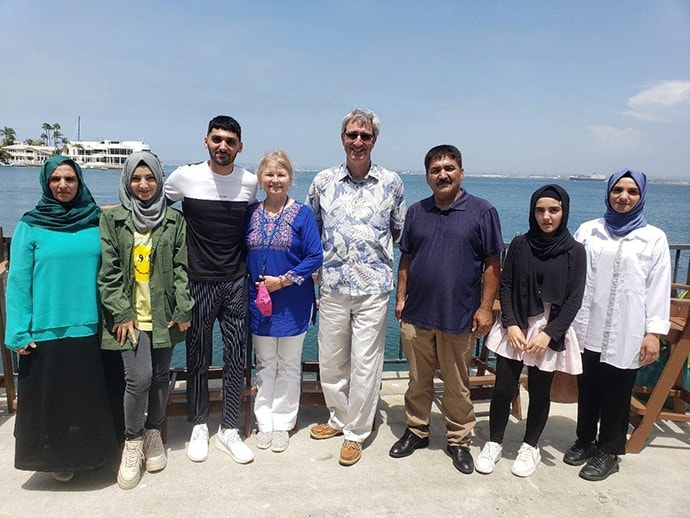
Sayed Zewary (3rd from left) with his family and OSL Senior Advisor, attorney Jill Olen, and OSL Volunteer Marvin Heinze in San Diego, California.
Sayed currently works in an international organization as a coordinator for a program that serves asylees and survivors of human trafficking and domestic violence. “The attacks on women rights around the world will only stop if men step up and help. It is an honor to serve this way,” said Sayed.
Get involved and support Afghans
It doesn’t stop with evacuating people from Afghanistan. OSL gives monthly support to more than 200 Afghans in Islamabad, Pakistan. They also care for many other Afghans still in-country, which requires complex operational planning and support. They work hard to raise funds every month for lodging, food, medical needs from colds to pregnancies to heart issues, and documentation assistance such as passports and visas.
“I’d like to throw down a challenge to people reading this article: This is hard volunteer work, but it’s the most meaningful you’ll ever find. You will find yourself in the trenches with like-minded people. It will renew your spirit. You’ll find yourself super excited to be contributing. Please Get involved today.” – Karen Kraft
Goalmaker
Elfatih Abdelnabi, Immigration Program Manager, International Rescue Committee
By Amber Cortes
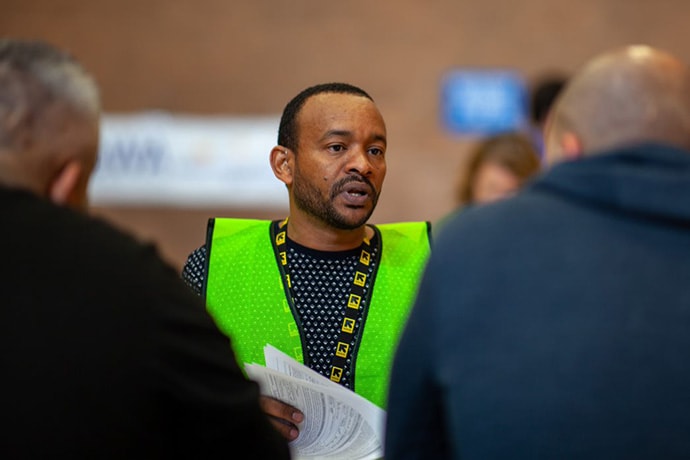
Elfatih Abdelnabi, Immigration Program Manager, International Rescue Committee. Photo: IRC
It started with his own family. Now, Elfatih Abdelnabi helps refugees all over the world reunite with theirs.
Elfatih Abdelnabi never expected he would end up in Seattle. In fact, at first, he didn’t even know where Seattle was.
In 2000, he had started the difficult journey from his home country of Sudan and made it to Egypt, where he applied for refugee status and was awaiting placement with the International Rescue Committee (IRC).
His placement turned out to be in Seattle. This was before the ubiquity of the internet and cell phones, so he looked it up in books, but couldn’t find it.
“It’s because I was focusing on all the famous areas of the U.S.,” he says with a laugh.
When he asked where Seattle was during orientation, and they showed it to him on a map, he was incredulous.
“’What, are you serious? You’re going to take me all the way there?’ And that was exactly my reaction at the time,” says Abdelnabi. “But guess what, here I am! I fell in love with Seattle, actually, I call myself a Seattleite, and now I feel that that cannot live anywhere else.”
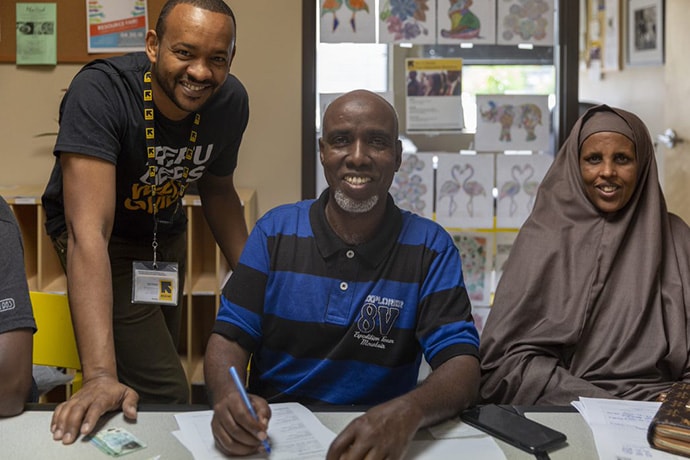
Elfatih assisting immigrant refugees in Seattle. Photo: IRC
Abdelnabi was born in Khartoum, Sudan, where he lived an idyllic childhood growing up with his large family of three brothers and three sisters. That is, until June 1989 when the Sudanese Armed Forces, with support from the National Islamic Front, took over the democratically elected government in a coup d’état.
“Our life just turned upside down,” says Abdelnabi. “We used to own a house, a car, we used to go to nice schools, you know, so, exactly that middle class kind of life, but then all of a sudden, when the coup happened, everything changed.”
The new Al-Bashir government banned all political parties, imposed strict dress limitations for women, and eradicated the free press.
Abdelnabi, along with his family, were harassed for their political beliefs and activities. His father lost his job, they lost the house and their family of nine started separating because they couldn’t all be safe in one place.
Once he made it to the United States, Abdelnabi had only one thing on his mind —helping get his family members get there, too.
“So the first thing I did when I immigrated here is start the process to sponsor my mom and dad.”
Abdelnabi managed to get his parents to the states, along with some of his brothers and sisters. All while working multiple jobs to support himself and seeking to complete his education, which had been interrupted by the coup.
One day in 2016, Abdelnabi dropped by the IRC office to check on the status of a family member. As part of his program in Business and Information Technology at Seattle Community College, he needed to fulfill an internship requirement of 150 hours.
That’s when he happened to notice the volunteers there that day.
“That immediately caught my eye. And I was like, I have 150 hours. Do you guys want them? So imagine, from the time I started doing the 150 hours until now, I’m still here; I have not left.”
At IRC, Abdelnabi tried on all the hats—volunteering, interning, and working the front desk— until he found himself “really knowing like everything going on at the IRC.”
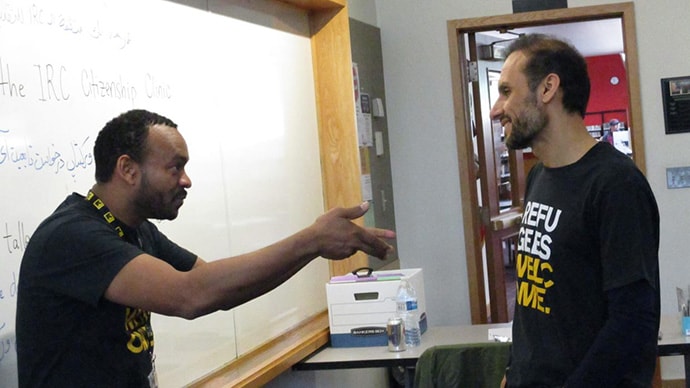
Elfatih Abdelnabi, left. Photo: IRC
Eventually, Abdelnabi was offered a position as Immigration Assistant; today his current position is Manager. In his role, Abdelnabi provides direct services to refugees arriving in Seattle and oversees the Immigration department. He is also actively involved with IRC’s new branch in Spokane to start providing effective immigration services, which are in high demand in the area, by hiring, training, and supervising the immigration team.
Because IRC works to support refugees in all areas of their life: education, health, safety and economic empowerment, Abdelnabi’s team of colleagues under the Housing & Development Team also arranges housing logistics for the Seattle co-sponsorship program, which opens up opportunities for volunteers to get involved in IRC.
Immigrations service, says Abdelnabi, is more than just knowing how to fill out an application. “Clients, they come to us from a lot of different backgrounds, and have a lot of different needs, but the same need is always about safety. It is all about family.”
Having been through it, Abdelnabi knows this well. That’s why he is able to bring not only what he’s learned sponsoring his own family to the role, but also the depth of his lived experience as a refugee. This means a lot to his clients, who even call him family.
“It takes a lot of emotions to work with immigration clients. I try to advise my team or my new people, try not to be emotional when listening to their stories, but it is too hard.”
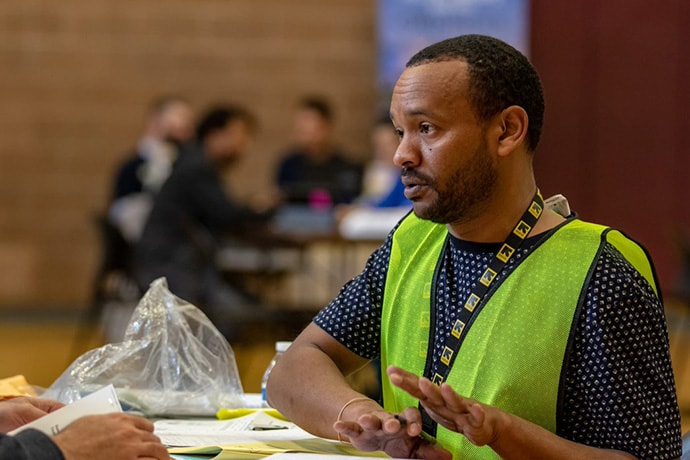
Elfatih Abdelnabi. Photo: IRC
And it also means quickly responding to each global crisis as it unfolds: during the Fall of Kabul in 2021, Abdelnabi woke up to hundreds of emails, and had to pivot fast.
But that moment when he gets to see families reunited at the airport makes it all worthwhile.
“The best reward I have in this job is when people get together, when families come together.”
As a former refugee himself, Abdelnabi wants to fight the stereotypes people may have of refugees. “One of the things that refugees are facing is that they have been discredited—discredited for their accent, for their native language, anything,” says Abdelnabi. “But actually, they prove themselves to be capable, if they are given the chance. You know, they are actually very trustworthy.”
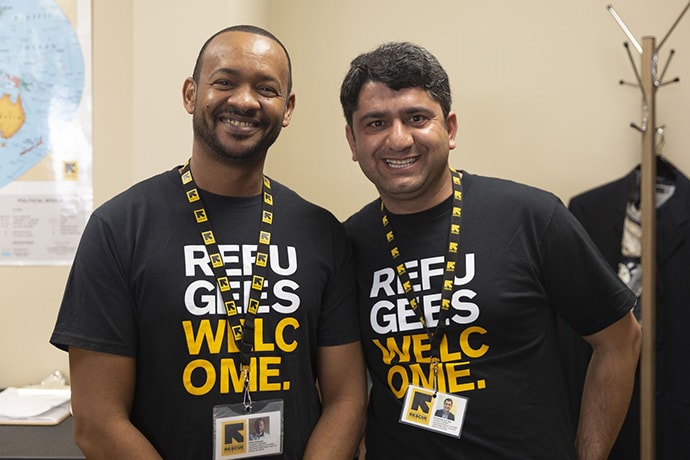
Elfatih Abdelnabi, left. Photo: IRC
And recently on June 20 (World Refugee Day), the IRC launched a campaign sharing stories of refugees as changemakers who contribute to the culture and economies of the countries they end up calling home.
But if you are looking for changemakers, look no further than Elfatih Abdelnabi and his remarkable life path. After enduring his own refugee journey, he went from sponsoring his family to helping families all over the world find safety and a better life.
“What I learned from my own lived experience is what I’m trying to teach people right now.”
Links for Issue Campaign
Highlighted Social Posts:
World Vision: What is a Refugee?
UNHCR /USA for UNHCR: Global Trends Report 2022 | UNHCR
International Rescue Committee: 110 million people displaced around the world: get the facts | International Rescue Committee (IRC)
Mercy Corps: Stronger together: Local partners provide critical aid in Ukraine and beyond | Mercy Corps
USA for UNHCR: Democratic Republic of the Congo Refugee Crisis Explained | USA for UNHCR (unrefugees.org)
Concern WorldWide: Emergencies & Refugees | Concern Worldwide (concernusa.org)
Oxfam: Bringing relief to refugees | Oxfam (oxfamamerica.org)
Americares: War in Ukraine | Americares Emergency Response
Covenant House: Youth Migration | Covenant House
Mercy Corps: A big bet on helping refugees build their dreams | Mercy Corps
Opportunity International: Refugees | Opportunity International UK
Welcome New Members
Please welcome our newest Global Washington members. Take a moment to familiarize yourself with their work and consider opportunities for support and collaboration!
Diversity Travel
As an award-winning travel organization for non-profit travel, Diversity Travel specializes in fully integrated travel services for the humanitarian, faith, and NGO sectors. Its non-profit travel experts support with travel arrangements to familiar and more obscure areas of the globe, with access to exclusive and flexible humanitarian airfares.
Member Events
September 23: Mona Foundation: MONA 2023 GALA – 11:00am PT
October 6: Agros International: Tierras de Vida 2023 – 6:00pm PT
Career Center
Administrative & Student Services Coordinator Remote Energy
Director, Business Development Splash International
Grant Writer Splash International
Operations & Administration Manager Amplio Network
Communications Officer The Max Foundation
Cultural Orientation Volunteer International Rescue Committee (IRC)
Airport Pickup Volunteer International Rescue Committee (IRC)
Fund Development Manager Mona Foundation
Grants & Contracts Manager Snow Leopard Trust
Director, Monitoring, Evaluation, Research and Learning (MERL) HCP Cureblindness
Vice President, Administration & Chief Financial Officer The Max Foundation
Engagement Manager Linksbridge
Trainee Consultant Linksbridge
Climate Engagement Officer FSC Investments & Partnerships
Director of Finance and Operations Seattle International Foundation
Check out the GlobalWA Job Board for the latest openings.
GlobalWA Events
June 28: Building Bridges to Health: Advancing Global Access to Quality Healthcare – 1pm PT
November 30: VIRTUAL: 2023 Goalmakers Conference
December 7: IN-PERSON: 2023 Goalmakers Conference